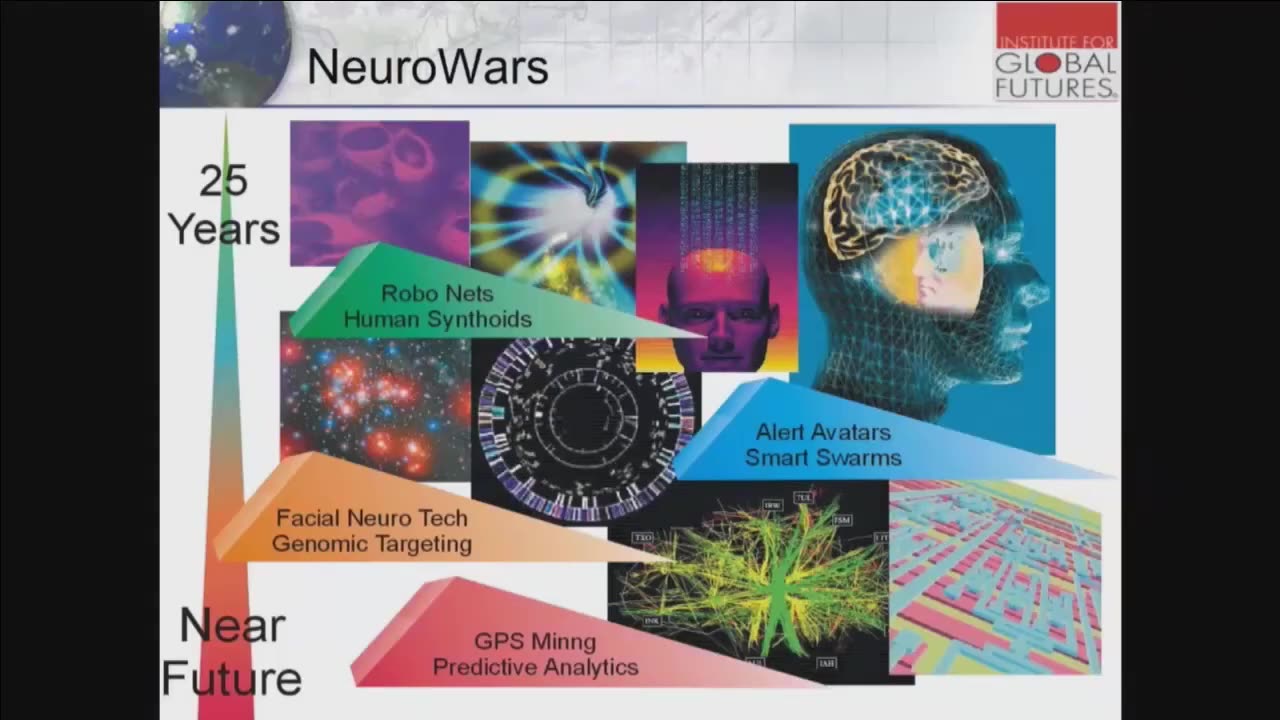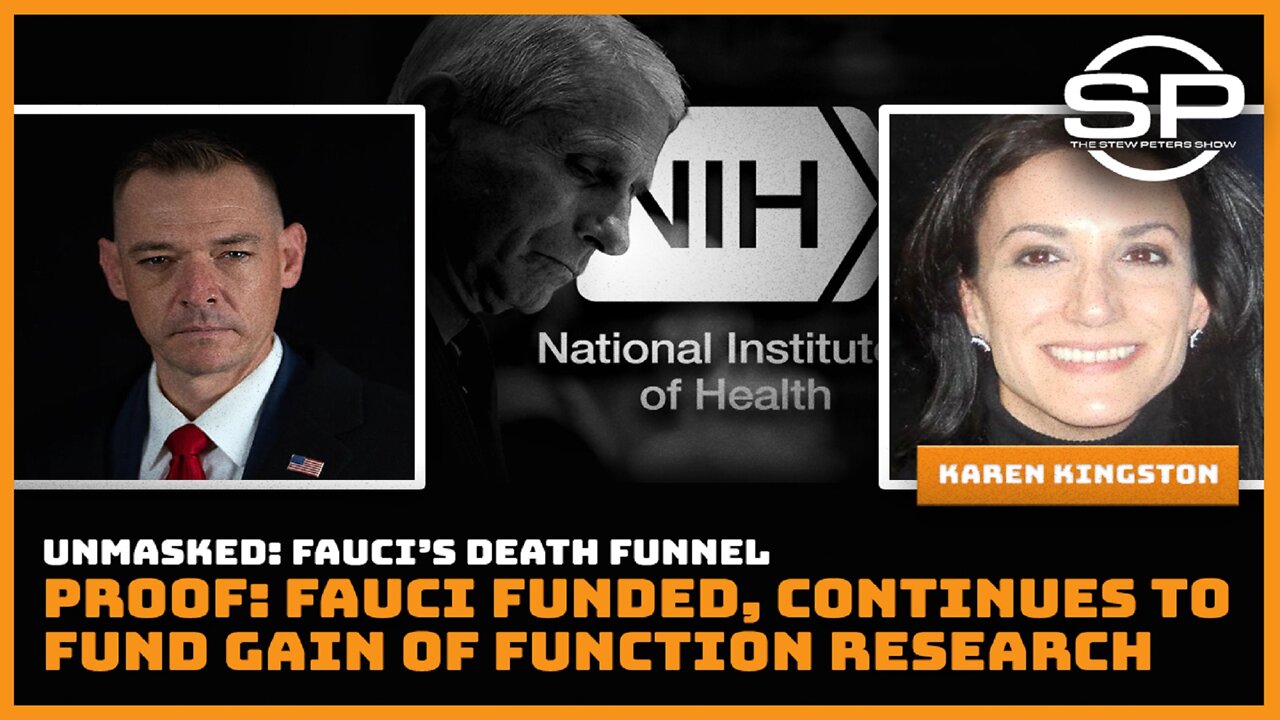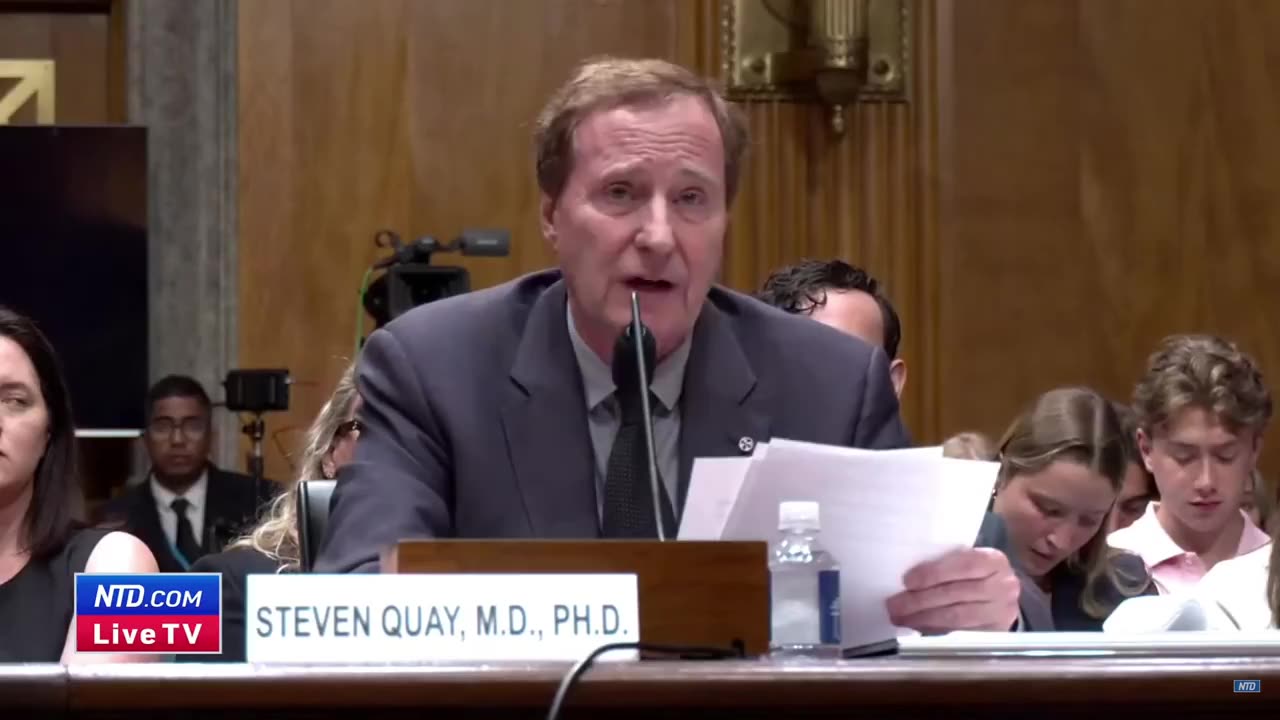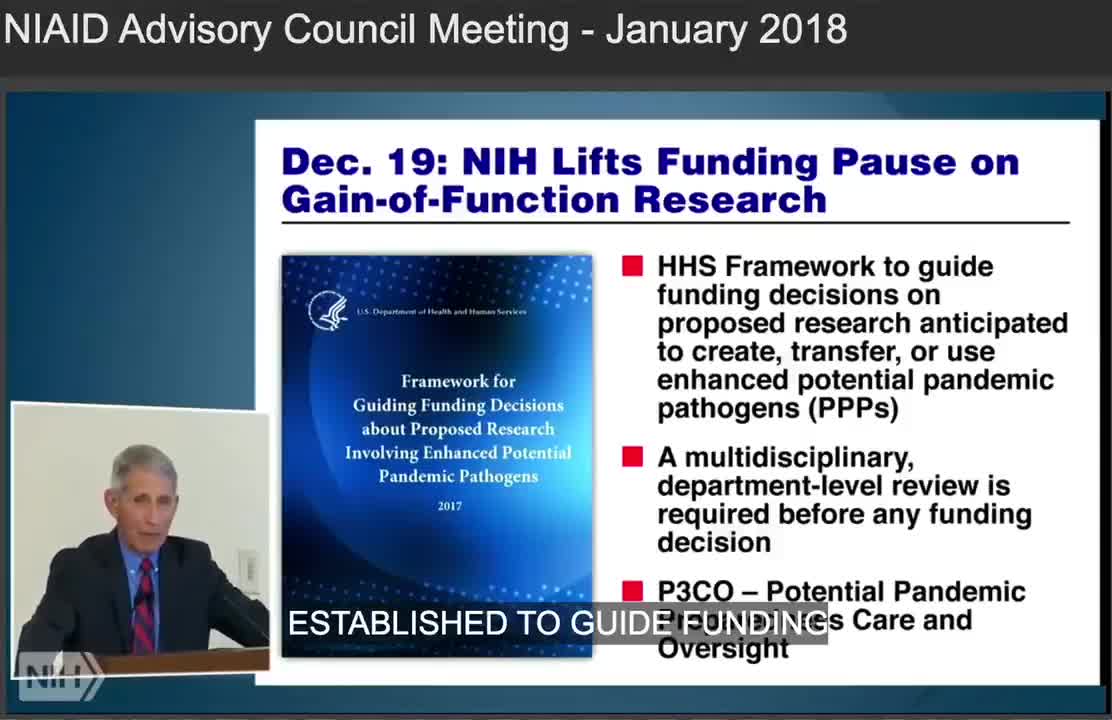Up next
Mad Scientist GTI Conference 2017: Convergence of Future Technology w/ Dr Canton
Rep. Jordan: DOJ must probe federal funding of gain-of-function research
Terrence On How Neil DeGrasse Tyson Shunning His Research | Joe Rogan & Terrence Howard
NZXT Function 2: An Impressive Gaming Keyboard With Solid Customization for Windows Users
🔬 Dr. Steven Quay: Six reasons COVID-19 is likely a gain-of-function lab leak
Dr Robert Malone: The Gloating Of Gain Of Function From Pfizer
ILLEGAL GAIN OF FUNCTION IS RAMPANT IN U.S. UNIVERSITIES
Research suggests Gen Z opting to become NEETs
Robert Bilder - How do Human Brains Function?
A Planetary Scientist's Unexpected (Animated) Journey at 1pm
A Planetary Scientist's Unexpected (Animated) Journey at 6pm
Mysterious Anti-Gravity Research and Russia's Tsunami Torpedo
FULL EXCHANGE: Josh Hawley GRILLS COVID-19 Scientist
Merrick Garland on new revelation about Fauci and gain-of-function research
WEF Scientist Testifies 'Man-Made Climate Change Is a Depopulation Scam'
Dr. Fauci CAUGHT Lying Over Knowledge Of COVID's Illegal Gain-Of-Function Origin.
NASA Scientist for a Day Essay Contest 2020-2021
Shocking Testimony: NIH Funding Gain-Of-Function Research & Avoiding FIOA Requests!
Elon Musk Says PROSECUTE FAUCI After NIH Official ADMITS To Gain of Function Research
GAIN OF FUNCTION CRIMINALS ARE SQUIRMING
No Question Fauci Lied About Gain Of Function Experiments
When Did We Ever Think We Could Trust China With Gain of Function?
Fauci emails expose panic over Gain-Of-Function work
CTMU: The Identity of Reality is a Structure in which Universe and Theory are Self-Dual
Colorado, Wyoming to work together on climate research
Why Thomas Sowell's perspective on immigration still resonates
Dual Use Research and Gain-of-Function: Perspective of a Junior Scientist
Benjamin G. Hale, University of Glasgow, Centre for Virus Research; Silke Stertz, University of Zurich, Institute of Medical Virology (IMV) Speech at the Herrenhausen Symposium "Dual Use Research on Microbes: Biosafety, Biosecurity, Responsibility", 12.12.2014 Benjamin G. Hale talks about the boundaries between dual use research of concern and gain-of-function experiments that are becoming more and more muddied. He points out that gain-of-function research encompasses a wide-range of experiments and is not limited to studies on increasing virulence or transmission. He analyses the impact of the discussion on junior scientists and the consequences for attractiveness of the field of research. Subsequently, Silke Stertz speaks about cellular proteins that the influenza virus uses to enter host cells and how these cellular factors facilitate viral entry. She explains how researchers can use this kind of information to develop drugs against influenza viruses. She also analyzes the responsibility of scientists and the importance of communicating decision processes. Hale completed his Ph.D. at the University of St. Andrews, UK, before undertaking postdoctoral training at Mount Sinai School of Medicine, New York, USA. In 2011, Dr. Hale was appointed Group Leader and Lecturer at the MRC – University of Glasgow Centre for Virus Research, UK, where his laboratory studies the interplay between influenza virus virulence factors and cellular signaling networks. Silke Stertz completed her Ph.D. at the Albert-Ludwigs University Freiburg, Germany. She joined the laboratory of Prof. Peter Palese at Mount Sinai School of Medicine, New York, USA, for her postdoctoral training. In 2011, Dr. Stertz was appointed assistant professor at the University of Zurich, Switzerland, where she started her own research group. Her work focuses on the interplay of influenza viruses with their host cell, particularly at the stage of virus entry. Photo: Philip Bartz for Volkswagen Foundation ScienceUncut - Science Podcast by Volkswagen Foundation
- Top Comments
- Latest comments


















































